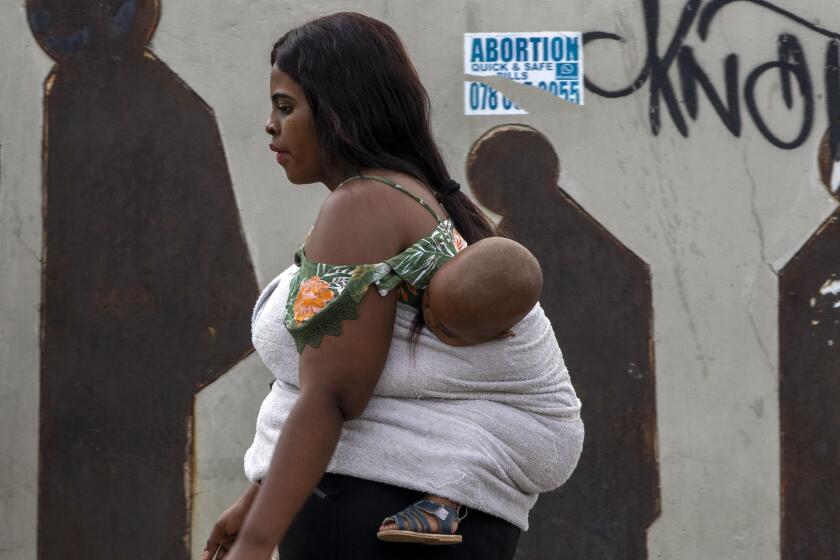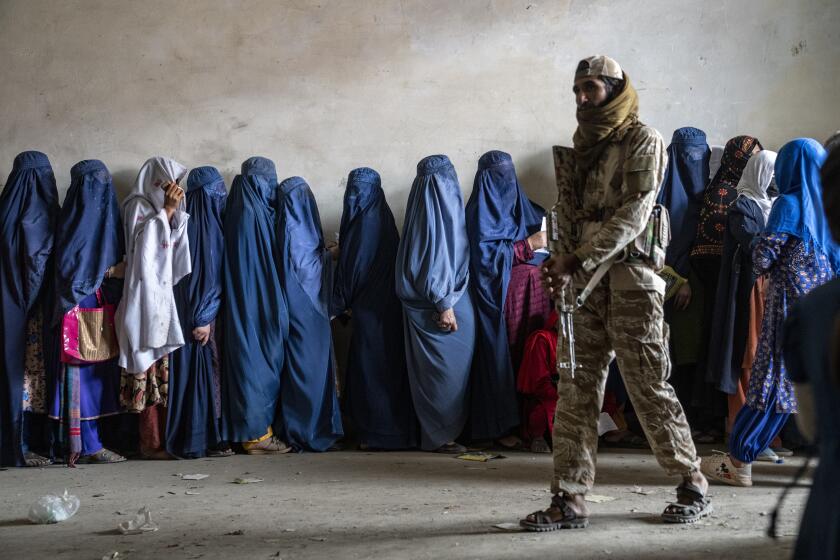U.N. report points to gap of inequality in sexual and reproductive health worldwide

- Share via
GENEVA — A new study says an African woman is roughly 130 times more likely to die from pregnancy and childbirth complications than a woman in Europe or North America, the U.N. population fund reported Wednesday as it decried widening inequality in sexual and reproductive health and rights worldwide.
UNFPA’s latest “State of World Population” report also estimates that nearly 500 maternal deaths a day occur in countries with humanitarian crises or conflicts, and shows that women of African descent in the Americas are more likely to die giving birth than white women.
“Sweeping global gains in sexual and reproductive health and rights over the last thirty years are marred by an ugly truth — millions of women and girls have not benefited because of who they are or where they were born,” the fund said in a statement.
Millions of women and girls globally have lost access to contraceptives and abortion services because of the COVID-19 pandemic.
UNFPA executive director Dr. Natalia Kanem said that the unintended pregnancy rate has declined by nearly one-fifth since 1990 and that the maternal death rate has dropped by more than one-third since 2000.
But “inequalities within our societies and health systems are widening, and we have not adequately prioritized reaching those furthest behind,” she said. Improvements in health care access have mostly benefited wealthier women and members of ethnic groups with better access to care, the fund said.
Kanem hailed some progress: More than 160 countries have passed laws against domestic violence, and “legislation against LGBTQIA+ sexuality” that was once widespread has been on the retreat. Now only one-third of countries have such laws.
While she credited “the world’s agreement” that led to such gains, Kanem also warned: “Human reproduction is being politicized. The rights of women, girls and gender diverse people are the subject of increasing pushback.”
United Nations chief: Legal equality for women could take centuries as the fight for equality runs into discrimination and human human rights abuses.
“And yet, today, that progress is slowing. By many measures, it has stalled completely,” she said. “Annual reductions in maternal deaths have flatlined. Since 2016, the world made zero progress in saving women from preventable deaths in pregnancy and childbirth.”
“Health systems today are weak,” Kanem added. “They’re tainted by gender inequality, by racial discrimination and by misinformation.”
The fund called for new investment in sexual and reproductive health, as well as improvements in sexuality education, stopping gender-based violence, and “ending unmet need for contraception” — an issue that has driven a wedge in some countries.
Under the term of U.S. President Trump, the United States halted funding for UNFPA largely over concerns about abortion — depriving the fund of tens of millions of dollars over four years.
More to Read
Sign up for Essential California
The most important California stories and recommendations in your inbox every morning.
You may occasionally receive promotional content from the Los Angeles Times.












